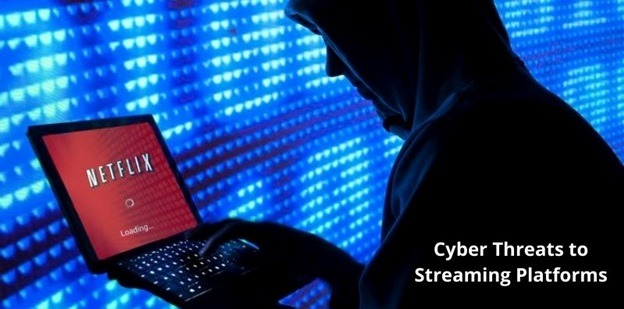It is no surprise the internet world is exposed to cyberattacks and threats. These hackers and scammers have successfully brought down many sites, individuals, and organizations, and cost millions in security damage. These Cyberthreats and attacks are not only targeting big businesses or large-scale organizations but also affecting the entertainment industry like Spotify, Netflix, Hulu, etc. and its users on a daily basis through malware or spamming.
In recent years amid Covid pandemic situation, where the streaming industry has seen a drastic upsurge, the hackers have also found a new dimension of their potential target. Yes, that’s the streaming platforms; Netflix is one of the most popular one among the binge-watchers. There are around 18 million Canadians using Netflix that means there are potentially 18 million accounts prone to cyberattacks.
On the other hand, Tech experts and Cyber security Experts are working hard to defend against their cyber criminals. One of the most reliable and powerful tools to protect against cyberattacks and data breaching is Virtual Private network.
When it comes to protection during streaming Netflix shows globally, not only a VPN can help to switch location from Canada to US on Netflix but also protects a user’s identity and online data. Of course, it is better to be safe than sorry. To be fully aware of the consequences, we write this article to share about the types of cyber threats that are attacking streaming services and ways to protect yourself from such attacks. Before we do so, let’s look at some of the cyberattacks on our favorite streaming platforms:
Recent Attacks on Streaming Platforms
- At the launch of Disney Plus, it became a victim of credential stuffing (explained ahead). Disney Plus lost thousands of user accounts that were sold on internet by hackers at $3 to $11.
- The dark web harbored a list of 845 listings of OTT credentials, according to trends report by Irdeto Piracy. The shocking part was how HBO Max, Netflix, and Hulu were in the listing.
- The music streaming service MixCloud came under attack and reported to have lost 20 million user data to the dark web.
- Proofpoint threat analysis showed how accounts of Netflix, HBO Max, and Disney Plus were acquired illegally and their login credentials were sold at a discount on the black market.
These attacks are proof of the dangers lying in cyberspace. Now let’s talk about the kind of attacks and their remedies.
1. Phishing attacks
Probably the most common attacks on streaming platform users are phishing attacks. We’ve seen these in WhatsApp group texts and emails. The way this attack lures its victim is by firstly grabbing their attention through an alarming update regarding the streaming service. The email design and template are posed to resemble the official channel. The structure will alarm you about payment issues or credential loss or an incentive like extra watch time. For you to avail of it, it will redirect you to a signup page of the platform. What you need to note is the redirected link that has nothing to do with the streaming platform.
In case you accidentally submit your login credentials to the false website, The remedy is to quickly change your password or contact the streaming site and warn them about the phishing activity. In the past, we’ve seen many services facing this attack. When Disney Plus launched, in its opening week, over a thousand accounts were attacked and many leaked. To ensure you are safe from these attacks, be careful of the links you click, and the grammar used in e-mail.
2. Credential Stuffing
This is an attack that nobody is prepared for. That is because it is based on probability and very few resources. What happens is someone collects your basic credentials like name, contact number, e-mail address, etc., and tries different variations of them to unveil your password. It seems like a cheap shot to access accounts, but it has worked on many accounts that had very weak passwords.
The remedy is to periodically change passwords and have strong passwords. Don’t use the obvious names or dates of births. Get creative in your account credentials and you’ll be protected from credential stuffing scammers.
3. Keylogging
This is a concerning cyber threat and can become a source of big loss. It can open gates to ransomware or worse. The way keylogging works are the stroke of keys is being recorded in your device, be it phone or laptop. The malware tries to access your laptop’s security settings and then installs a keylogging software that records your typing. It detects your common keystrokes and can figure out your passwords instantly.
The remedy is to keep your security services on peak and enable firewalls. Make sure you keep updating your passwords periodically and resist visiting malicious or dangerous sites.
Conclusion
To protect your browsing and streaming experience, the first measure is to purchase a Virtual Private Network (VPN). It offers browsing control, pure anonymity, a safe and secure streaming experience, and much more. It will also protect your device from being vulnerable to these attacks. Currently, there has been a lot of development in the cybersecurity space and the industry continues to battle hackers and scammers.
Soon, Cybersecurity will have an identity of its own and it will be recognized as a bare necessity rather than an add-on. Companies are already making a steadfast effort to bring onboard cybersecurity teams. As an individual, it is our responsibility to protect our presence online, use the internet resourcefully and ethically, and report any wrongdoings to the right authority.

